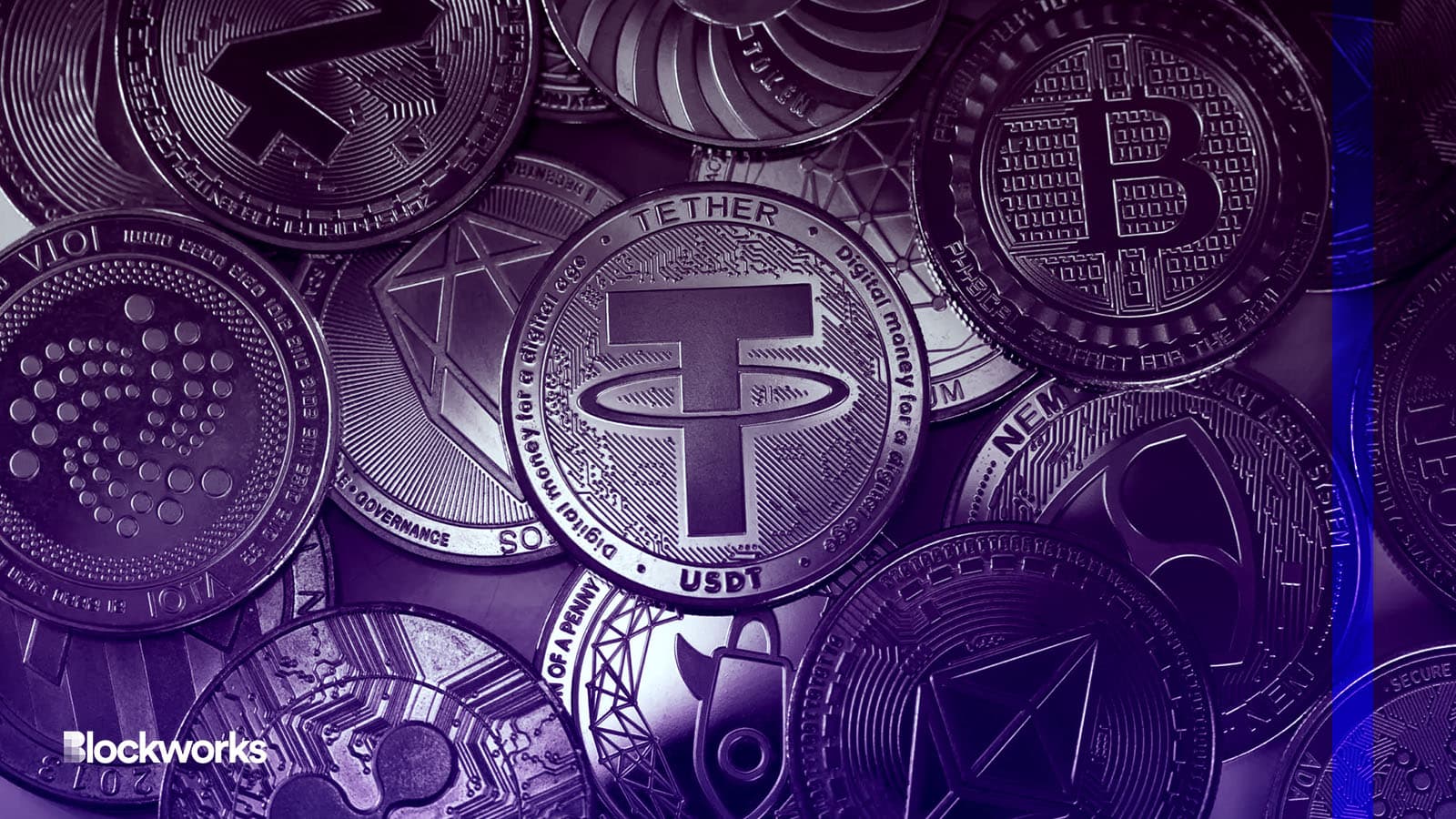Tether Won’t Freeze Sanctioned Tornado Cash Addresses Without Authorities’ Request
Stablecoin issuer calls the move by USDC to blacklist Tornado Cash smart contracts “premature”

Source: Shutterstock / DIAMOND VISUALS, modified by Blockworks
- Freezing secondary market addresses could be a highly disruptive and reckless move, Tether says
- Tether has historically banned more addresses on Ethereum than Circle
Tether (USDT) has not yet received a request from the US Office of Foreign Assets Control (OFAC) to freeze the smart contract addresses the agency blacklisted in association with crypto mixer Tornado Cash, the stablecoin issuer said in a post on Wednesday.
In the case the OFAC does put in an explicit request, Tether would comply, the company added.
“Unilaterally freezing secondary market addresses could be a highly disruptive and reckless move,” according to Tether, which indicated it doesn’t want to risk jeopardizing ongoing investigations, or to cause liquidations or an abandonment of funds.
The OFAC added 45 Ethereum addresses linked to Tornado Cash to its Specially Designated Nationals (SDN) list on Aug. 8, effectively barring US citizens from using the protocol or interacting with its addresses.
But Hong Kong-based Tether does not support American customers or conduct business in the US. It is thus choosing to voluntarily comply with certain US regulations.
Most of the addresses on the SDN list were Circle’s USD coin (USDC) contracts linked to Tornado Cash. Circle immediately obeyed the sanctions by blacklisting more than 35 Ethereum addresses, freezing $70,000 in USDC.
Tether mentioned Circle in its post, calling its move “premature” if done without instructions from US authorities.
USDT has historically banned roughly nine times as many addresses on Ethereum than USDC, according to data from Dune Analytics. Ethereum researcher Philippe Castonguay has tracked 709 banned addresses since its founding in 2017, while USDC has banned 82 addresses since June 2020.
US Rep. Tom Emmer, R.-Minn., urged Janet Yellen’s Treasury office on Tuesday to expand its Tornado Cash sanctions, saying “expectation of privacy is normal.”
Get the day’s top crypto news and insights delivered to your inbox every evening. Subscribe to Blockworks’ free newsletter now.






